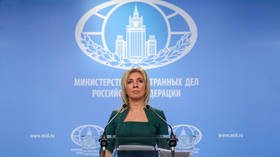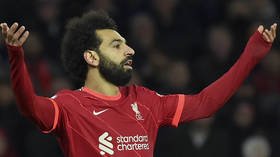EU targets European ex-Soviet states, excludes Russia
Amid increasing tensions between the EU and Russia, Brussels has opted to improve its relations with some former republics of the Soviet Union in an attempt to increase its sway in Eastern Europe, Moscow daily RBK has claimed.
In the last few days, President of the European Council Charles Michel has mediated a conversation between Azerbaijani President Ilham Aliyev and Armenian Prime Minister Nikol Pashinyan, and also met Belarusian opposition figure Svetlana Tikhanovskaya. The EU does not currently recognize Alexander Lukashenko as the country’s legitimate president.
Azerbaijan, Armenia, and Belarus all have a close relationship with Moscow, the largest and most influential player in the region.
Furthermore, on Wednesday, the bloc hosted the sixth Eastern Partnership summit in Brussels, a meeting that comprises Armenia, Azerbaijan, Georgia, Moldova, and Ukraine, alongside all 27 EU member states. All five nations are former republics of the USSR and have agreements with the bloc via the Eastern Partnership (EaP) program. Belarus suspended its participation earlier in 2021.
Of those countries, both Georgia and Ukraine are seeking to become members of the EU, but there appears to be no sign that they will be accepted anytime soon.
The Eastern Partnership, created in 2009, has long been seen by Russia as an attempt to transform neighboring states into an anti-Moscow bloc. In 2017, Foreign Minister Sergey Lavrov suggested that Brussels should instead attempt to find projects that could also include Russia, alongside the EU.
Two years later, Lavrov suggested that the EU wanted to “create a distance between Russia and its closest neighbors connected by centuries-old ties.”
According to Andrey Kortunov, director-general of the Russian International Affairs Council, the Eastern Partnership is in a state of permanent crisis. Speaking to RBK, he explained that its members have radically different views about future partnerships with the EU.
“When we are talking about such a large number of different countries … it is always very difficult to talk about a single scheme and a unified approach,” he said. “Of course, in one way or another, the program falls apart into a number of individual projects.”
He also noted how some countries want to be close to the EU but at the same time wish to remain friendly with Moscow.














